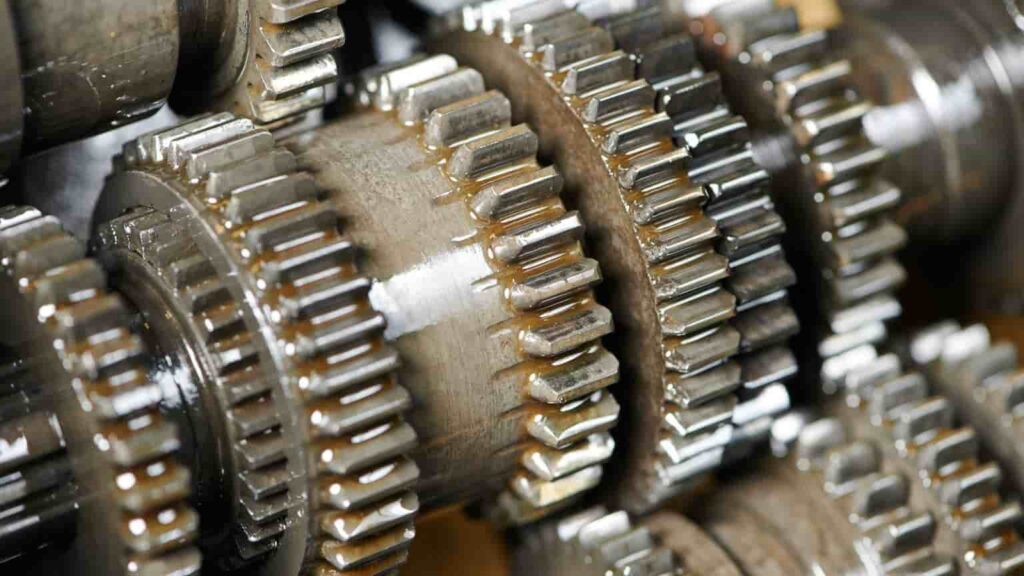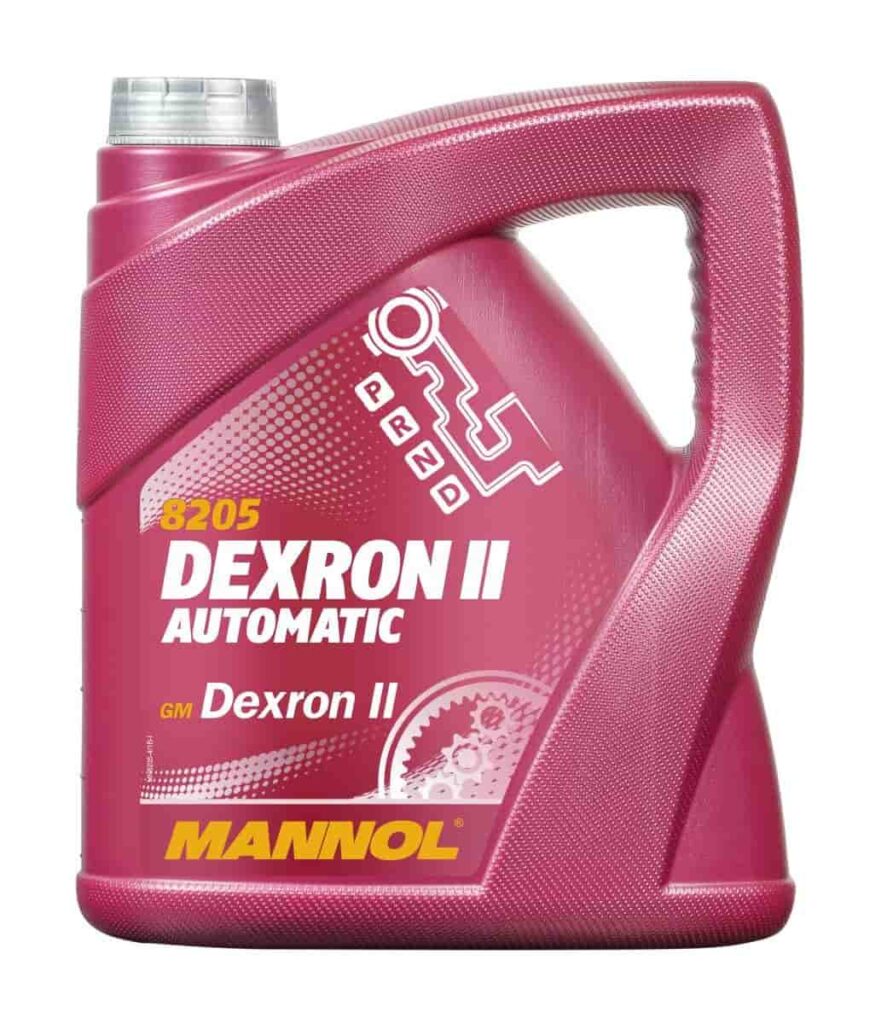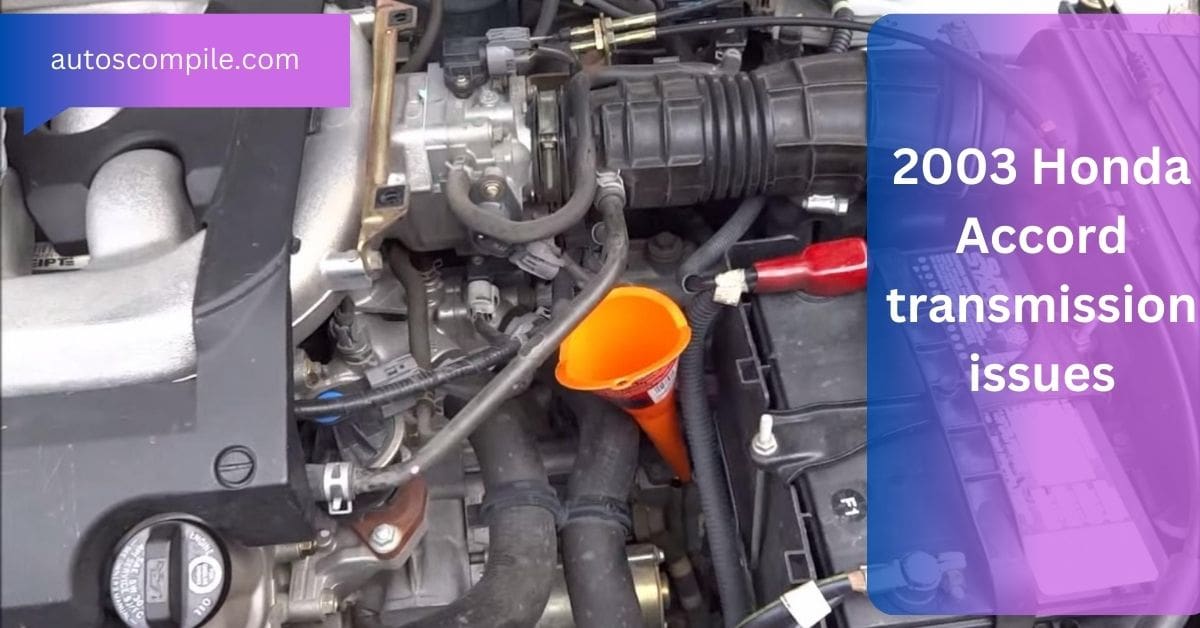Many 2003 Honda Accord owners face issues like slipping gears and rough shifting. Regular fluid changes are crucial to avoid these problems. Catching warning signs early helps prevent costly repairs and extends transmission life.
The 2003 Honda Accord often has transmission issues like slipping gears and rough shifts due to design flaws and overheating. Regular fluid checks and maintenance can prevent these problems. Addressing warning signs early helps avoid costly repairs.
Owners of the 2003 Honda Accord often share stories of slipping gears and rough shifts. Regular fluid changes and early attention to issues have proven essential in avoiding costly repairs and keeping the ride smooth.
What Are The Honda Accord Transmission Issues?

Refer to the problems and malfunctions in the transmission system of Honda Accord vehicles, particularly in certain model years like 2003. These issues can range from slipping gears, delayed or rough shifting, and transmission fluid leaks to more severe cases such as complete transmission failure.
These problems often arise due to design flaws, overheating, worn-out internal components, or improper maintenance. Recognizing the symptoms early, such as unusual noises or difficulty shifting, is essential for preventing further damage and costly repairs.
What Are The Common Transmission Issues?
Common Transmission Issues are:
1. Slipping Gears
Slipping gears occur when the transmission unexpectedly changes gears or has trouble staying in gear. This can cause the engine to rev higher without corresponding acceleration. The problem may stem from worn-out clutch plates, low transmission fluid, or issues with the transmission bands.
2. Rough Shifting
Rough shifting happens when the car hesitates or jerks during gear changes. This can make the ride feel uncomfortable and is often due to worn or damaged transmission components, low fluid levels, or faulty solenoids.
3. Fluid Leaks
Transmission fluid leaks are a common issue where fluid escapes from the transmission system. This can lead to inadequate lubrication, which may cause the transmission to overheat and suffer from increased wear. Leaks are often visible as red or brown spots under the vehicle.
4. Delayed Shifting
Delayed shifting refers to the noticeable lag between when you accelerate and when the car shifts gears. This delay can be caused by problems with the transmission control module, low or dirty transmission fluid, or worn-out internal components.
5. Overheating
Transmission overheating happens when the transmission runs too hot due to poor fluid circulation, excessive loads, or driving in harsh conditions. Overheating can damage internal parts and affect the overall performance of the transmission, potentially leading to failure.
Why Do These Transmission Issues Happen?
1. Low or Dirty Fluid
Transmission fluid is key to smooth shifting. When it’s low or dirty, it can’t properly lubricate, causing slipping and rough shifts.
2. Worn Parts
Over time, parts inside the transmission, like clutches or gears, wear out. This leads to rough shifting or even failure.
3. Overheating
When the transmission gets too hot, it can damage internal components, often due to poor fluid circulation or driving in extreme conditions.
4. Design Flaws
Some models, like the 2003 Honda Accord, have built-in design flaws that make the transmission wear out faster than expected.
5. Lack of Maintenance
Skipping regular fluid changes or ignoring warning signs can speed up wear and tear, leading to bigger problems.
How Do You Know If Your Transmission Is Failing?
You can tell if your transmission is failing by noticing a few key signs. Common symptoms include rough or delayed shifting, where the car hesitates or jerks when changing gears.
You might also hear unusual noises like grinding or whining, or notice the engine revving higher without the car speeding up (slipping gears). Leaking transmission fluid, which is typically red or brown, is another warning sign.
A burning smell could indicate overheating, and if the “Check Engine” or transmission warning light comes on, it’s a clear signal that something is wrong.
What Causes Transmission Issues In The 2003 Honda Accord?
You can spot transmission failure by looking out for certain signs, such as delayed or rough gear shifts, where the car hesitates or jerks during changes.
Other warning signs include strange noises like grinding or whining, slipping gears, or fluid leaks under the vehicle. A burning smell may indicate overheating, and if the dashboard shows a warning light, it’s a good idea to get the transmission checked immediately.
These symptoms often signal that the transmission needs attention before it leads to bigger, costlier problems.
Personal Experiences From Owners With 2003 Honda Accord Transmission Issues:
Many 2003 Honda Accord owners have shared their transmission struggles. One owner reported that their transmission began slipping around 120,000 miles. After a fluid change, the issue was resolved for a while, but it reappeared after another 30,000 miles.
Another owner faced complete transmission failure at just 90,000 miles, requiring an expensive rebuild. They expressed frustration over the unexpected cost despite regular maintenance. On the flip side, some owners have had better luck.
One driver shared that with regular fluid changes and careful driving, their transmission lasted over 200,000 miles without major issues. These stories highlight both the challenges and occasional durability of the 2003 Accord’s transmission.
How To Prevent Transmission Problems?

To prevent transmission problems in a 2003 Honda Accord, follow these steps:
1. Regular Fluid Checks and Changes
Frequently check the transmission fluid level and condition. Change the fluid according to the manufacturer’s recommendations to keep it clean and properly lubricated.
2. Monitor and Maintain Cooling System
Ensure your vehicle’s cooling system is working effectively to prevent overheating. Overheating can accelerate wear and tear on the transmission.
3. Address Warning Signs Promptly
Pay attention to symptoms like rough shifting, slipping gears, or unusual noises. Address these issues early to prevent further damage.
4. Avoid Overloading and Extreme Conditions
Refrain from towing heavy loads or driving in extreme conditions that can strain the transmission. Proper driving practices can reduce wear.
5. Perform Regular Maintenance
Follow a regular maintenance schedule, including fluid changes and system inspections, to catch minor issues before they become major problems.
Why Do 2003 Honda Accord Transmission Issues Occur?
Transmission issues in the 2003 Honda Accord often arise from several key factors. Design flaws in the transmission system contribute to premature wear and problems such as slipping gears and rough shifting.
Overheating is another common issue, usually due to inadequate fluid circulation or driving under extreme conditions, which accelerates component wear.
Low or contaminated transmission fluid can also lead to issues, as it fails to properly lubricate and cool the transmission, causing shifting problems and increased wear.
Additionally, as the vehicle ages, internal parts like clutches and gears naturally wear out, leading to performance issues. Neglecting regular maintenance, such as fluid changes and system inspections, can exacerbate minor issues and result in more severe, costly repairs.
What Kind Of Transmission Fluid Should I Use For A 2003 Honda Accord?

For a 2003 Honda Accord, you should use a Honda Genuine ATF Z-1 transmission fluid. This specific type of fluid is formulated to meet the needs of the Accord’s transmission system, ensuring proper lubrication, cooling, and shifting performance.
It’s important to use the recommended fluid to maintain optimal transmission function and prevent potential damage. Always check the vehicle’s owner’s manual or consult with a dealership to confirm the correct fluid type and specifications for your specific model and trim.
Can Regular Maintenance Prevent Transmission Issues In A 2003 Honda Accord?
Yes, regular maintenance can help prevent transmission issues in a 2003 Honda Accord. By adhering to a maintenance schedule that includes frequent checks and changes of the transmission fluid, you ensure that the transmission remains well-lubricated and properly cooled.
This can prevent overheating and reduce wear on internal components. Regular inspections also allow you to address any minor issues before they escalate into major problems. Proper maintenance is crucial for extending the lifespan of the transmission and avoiding costly repairs.
What Are The Signs Of A Transmission Fluid Leak In The 2003 Honda Accord?
Signs of a transmission fluid leak in a 2003 Honda Accord include:
- Fluid Spots or Puddles: Red or brown spots under the vehicle where it is parked can indicate a transmission fluid leak.
- Low Fluid Warning Light: A warning light on the dashboard may alert you to low transmission fluid levels.
- Slipping Gears: If the transmission slips or has difficulty staying in gear, it may be due to low fluid levels from a leak.
- Rough Shifting: Difficulty or roughness when shifting gears can also signal a fluid leak.
- Burning Smell: A burning smell may indicate that overheated transmission fluid is leaking and not properly cooling the transmission.
What Is The Cost Of Repairing A Transmission Issue In A 2023 Honda Accord?
The cost of repairing a transmission issue in a 2003 Honda Accord can vary widely depending on the severity of the problem. Minor repairs, such as fixing a leak or replacing a faulty sensor, typically range from $300 to $600.
More extensive repairs, like replacing clutches or other internal components, can cost between $1,000 and $2,500. If the transmission needs a complete rebuild or replacement, the cost can range from $2,500 to $4,000 or more.
The exact cost will depend on the specific issue, labor rates, and whether repairs are done at a dealership or an independent shop. For an accurate estimate, it’s best to get a diagnostic and repair quote from a qualified mechanic.
Faqs:
1. Can transmission issues in a 2003 Honda Accord be related to other vehicle systems?
Yes, issues with the engine, cooling system, or electrical components can affect transmission performance.
2. Can aftermarket transmission parts be used for repairs in a 2003 Honda Accord?
Yes, but ensure they meet OEM specifications to avoid compatibility and performance issues
3. Are there any extended warranties or service plans available for the transmission of a 2003 Honda Accord?
Some third-party providers offer extended warranties or service plans that cover transmission repairs.
4. How does towing affect the transmission in a 2003 Honda Accord?
Towing can increase the load on the transmission, leading to overheating and accelerated wear if the vehicle is not equipped for towing.
Conclusion:
The 2003 Honda Accord often experiences transmission problems due to design flaws, overheating, and wear over time. Common issues include slipping gears, rough shifting, and fluid leaks. Regular maintenance and prompt attention to warning signs can help prevent costly repairs and extend the life of the transmission. While issues are common, proper care can reduce risks and keep the Accord running smoothly.

